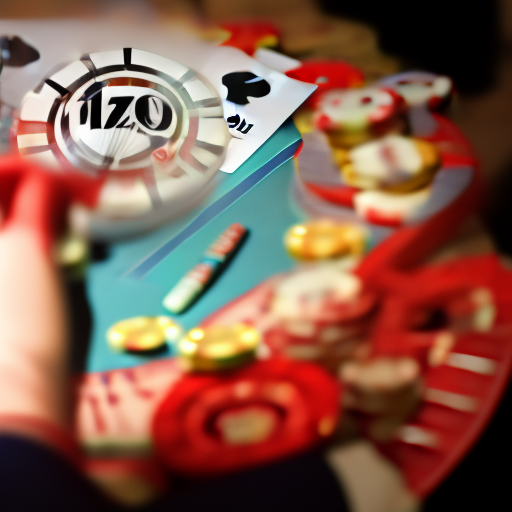Do you often feel like the odds are stacked against you during poker? Well, you’re in luck – your chance of success at the felt might be vastly improved with a better understanding of how you think. With this guide, you’ll discover how to take control of your thought process; harness your poker mind and transform your entire approach to the game. Whether you’re a beginner or an experienced pro, this important advice will guide you on the way to success. Read on to find out how to unlock your inner poker maestro.
Utilizing Your Personal Strengths
Everybody has personal strengths, but not everybody knows how to use them. In order to achieve success, it’s important to identify your strengths and apply them in the right situations. Below are some tips on how to do just that:
- Take a personality assessment: Understanding your personality type can help you determine what your strengths are.
- Ask for feedback: Get feedback from others to identify your unique strengths and areas of improvement.
- Be aware of your skills: Identify skills that come naturally to you – these are often linked to your strengths.
Once you’ve identified your strengths, it’s important to use them in a way that benefits you. This may mean seeking out opportunities that allow you to utilize your strengths or finding ways to incorporate them into your current work. Additionally, don’t be afraid to share your strengths with others – this can help you build stronger relationships and increase your chances of success even further.
- Develop your strengths: Find ways to further develop your skills and strengths to achieve even greater success.
- Be confident: Embrace your strengths and be confident in yourself. Use them to overcome challenges and achieve your goals.
- Improve your weaknesses: While it’s important to utilize your strengths, it’s also important to work on improving areas of weakness to become a well-rounded individual.
Regulating Your Emotions at the Table
When you’re at the table, it can be easy to get swept away by your emotions. Maybe someone said something snide, or perhaps the meal isn’t going the way you wanted it to. Whatever the case may be, it’s important to regulate your emotions so that you don’t ruin the experience for everyone else. Here are a few tips to help you keep your cool.
- Take a deep breath. Before you say or do anything, take a deep breath and count to three. This will give you a moment to compose yourself and think before you act.
- Focus on the positives. Instead of dwelling on the negative aspects of the meal or conversation, try to focus on the positives. Maybe the food is delicious, or perhaps the company is great.
- Acknowledge your feelings. It’s okay to feel upset or angry, but it’s important to acknowledge those feelings and not let them consume you. Take a moment to recognize what you’re feeling and why.
Remember, regulating your emotions isn’t about bottling them up or pretending they don’t exist. It’s about acknowledging them, taking a moment to breathe, and choosing how to respond. With a little practice, you’ll be able to keep your emotions in check and enjoy your meals with friends and loved ones. So the next time you feel your blood starting to boil, take a deep breath and remember these tips.
Setting Reasonable Expectations
It’s easy to fall into the trap of setting unrealistic expectations for yourself. Maybe you’ve set a goal that’s too lofty, or you’re expecting yourself to accomplish too much in too short a time. Whatever the case, it’s important to set reasonable expectations for yourself in order to avoid frustration and burnout.
So, what exactly does entail? First, it means being honest with yourself about your abilities and limitations. Don’t try to take on more than you can handle, or put too much pressure on yourself. Instead, take a step back and evaluate what you can realistically accomplish given your current circumstances. Maybe you need to adjust your timeline or break down your goals into smaller, more manageable tasks. Remember, progress is progress, no matter how small. Embrace the potential of the mental growth that poker can bring! Taking the time to focus on honing your craft can help you eventually become a master of the game. Instead of always hoping luck finds its way to you, begin to take steady steps towards using your own mental prowess to achieve your poker goals. Harness your poker mind and get ready to confidently tackle the table.